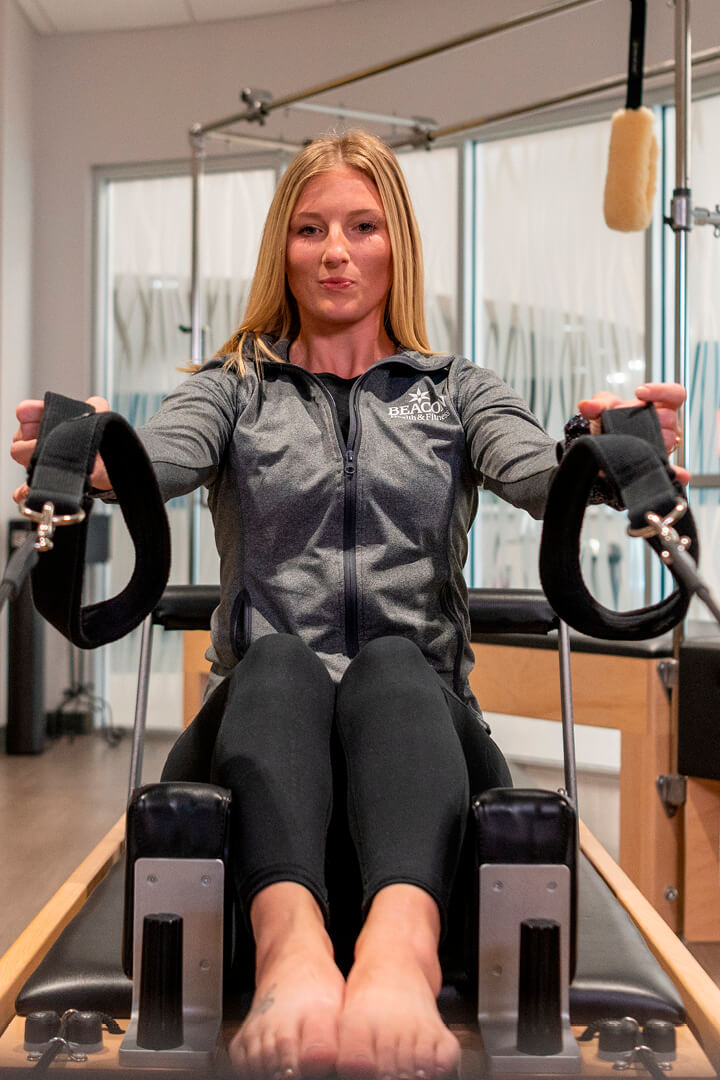 Strategy & Maximization.
Strategy & Maximization.
In most cases, certainly, some movement is better than none. But some movements are actually bad for your body, and if you’re putting in the time, you want to make sure it’s time well spent. “With a trainer you get the reassurance that your workout is effective, and you’re doing exercises correctly to avoid injury,” says Mannen. Trainers monitor pacing and intensity to ease you in, get you working harder than you would on your own when you’re ready to go strong, and modify according to the daily circumstances of your life and the unique needs of your body. Want a workout you can do at home or take on the road? Need some stretches to work on those tight hips? Want to shore up your weak ankles so you can do more hiking? The expertise of a trainer can help you with all kinds of specific goals—while you’re training and when you’re not.
Motivation.
Particularly after a period of workout irregularity, we simply might lack the mojo to move. “You get your own personal cheerleader,” says Mannen, about working with a trainer. “So many times, our own friends and family don’t always support our goals the way we need them to. A trainer is unconditional support—and not just in one workout, but in all your goals.” And of course, there’s nothing like having someone focused solely on you while you workout to make you realize what you’re really capable of. And surprising yourself with abilities you didn’t know you had? Very motivating.
Accountability.
Some of the most productive and healthy people in the world say this when asked how they got something done: I signed up, paid, and put it in my calendar. The literal investment of money and scheduling changes a thing you should do into a thing that is happening (next Tuesday, at 2:30 PM!). “When someone is expecting you,” Mannen says, “it’s a real commitment.”





